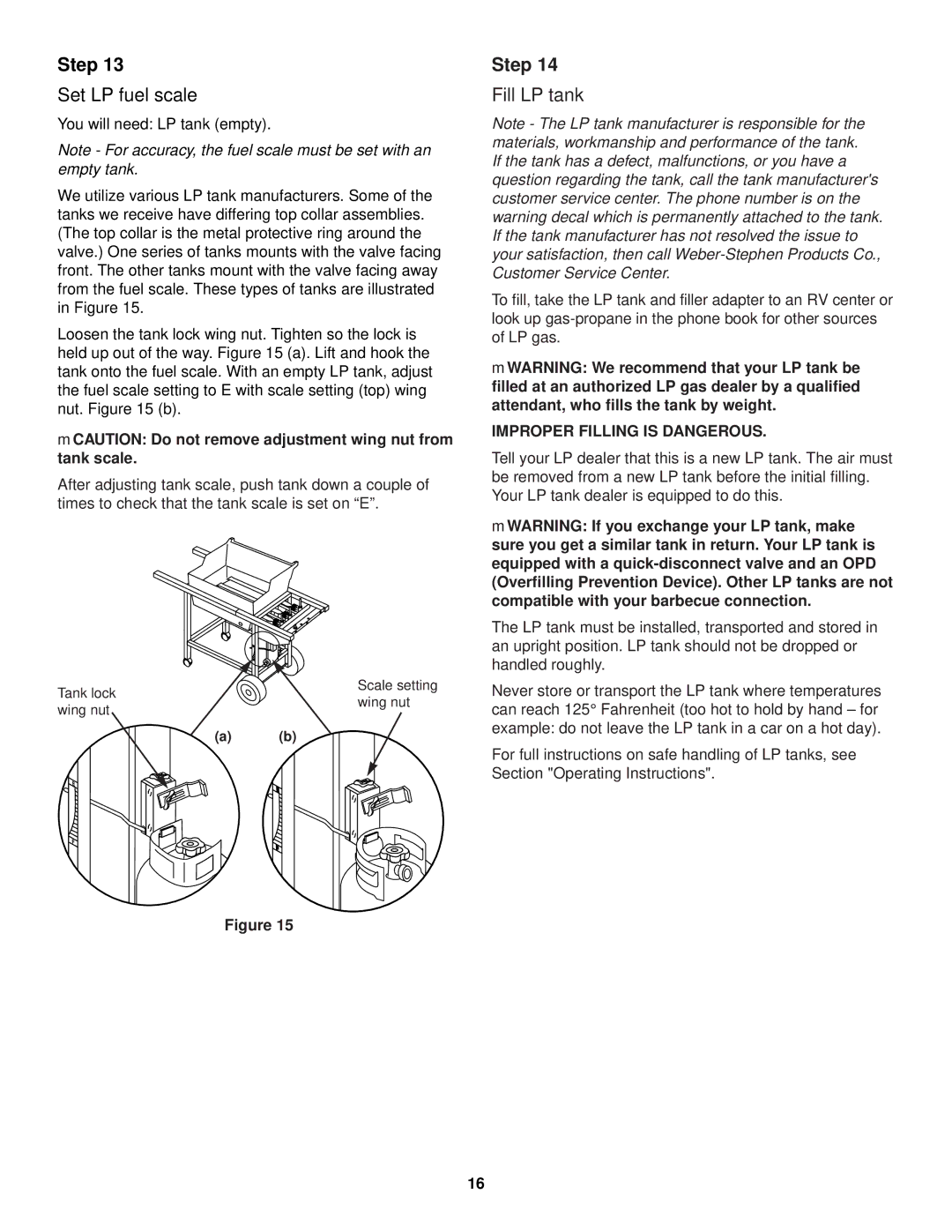LP Gas Barbecue, 1000 SERIES specifications
The Weber 1000 Series grills are a popular choice for outdoor cooking enthusiasts, delivering a combination of performance, durability, and innovative features. Designed to cater to both beginners and experienced grillers, the 1000 Series elevates cooking experiences with its user-friendly interface and high-quality manufacturing.One of the standout features of the Weber 1000 Series is its powerful heating capability. Equipped with Weber's signature burners, these grills provide even heat distribution for consistent cooking results. The high-BTU gas burners ensure quick preheating and maintain steady temperatures, allowing users to sear steaks or grill vegetables to perfection.
The construction of the 1000 Series is robust, typically featuring a stainless steel main body that stands up to the weather elements, providing longevity and resistance to rust. The grills are designed for easy maintenance, with removable grease trays that make clean-up a breeze. Additionally, the enameled cast-iron cooking grates are not only durable but also contribute to excellent heat retention, giving food those coveted grill marks.
Another key technology incorporated in the Weber 1000 Series is the Flavorizer bars. These angled bars sit above the burners and catch drippings that can cause flare-ups. By converting these drippings into flavorful smoke, the Flavorizer bars enhance the taste of the grilled food. This feature is particularly appreciated by those who enjoy rich, smoky flavors in their dishes.
The series often includes features such as side tables for extra workspace, ensuring that you have enough room for food preparation and grilling tools. Some models also come with built-in thermometers that allow for precise temperature monitoring without lifting the lid, which helps to maintain cook times and prevents heat loss.
In terms of mobility, Weber 1000 Series grills often come equipped with wheels, making it easy to move the grill around your patio or backyard. With different configurations available, including both propane and natural gas options, users can choose the fuel type that best fits their grilling needs.
In conclusion, the Weber 1000 Series stands out for its combination of power, durability, and innovative features that simplify grilling while enhancing flavor. Whether you are hosting a backyard barbecue or having an intimate family dinner, the 1000 Series offers the performance and reliability that every grill master seeks. With its sleek design and thoughtfully engineered capabilities, this series continues to be a top choice for outdoor cooking enthusiasts.

